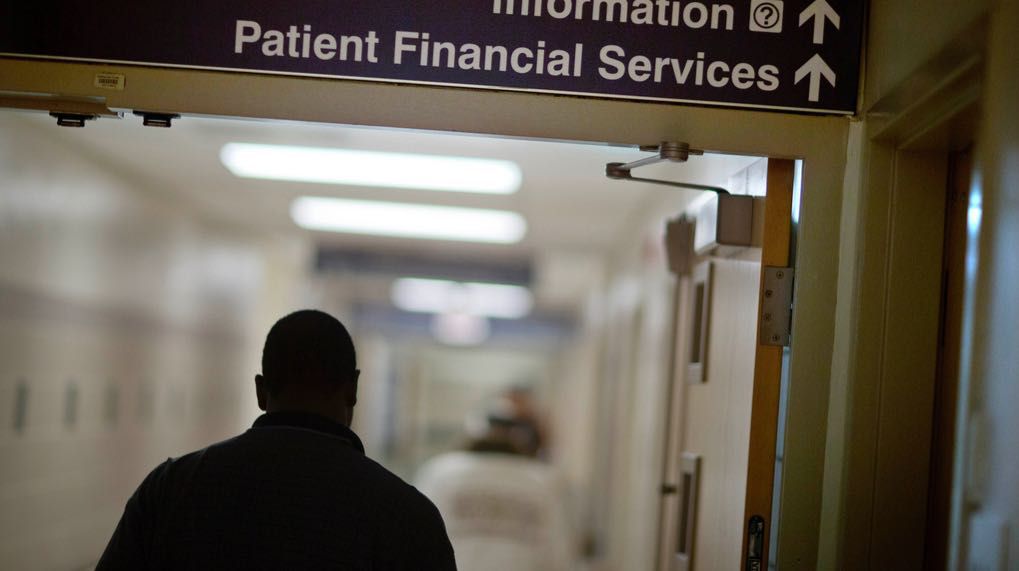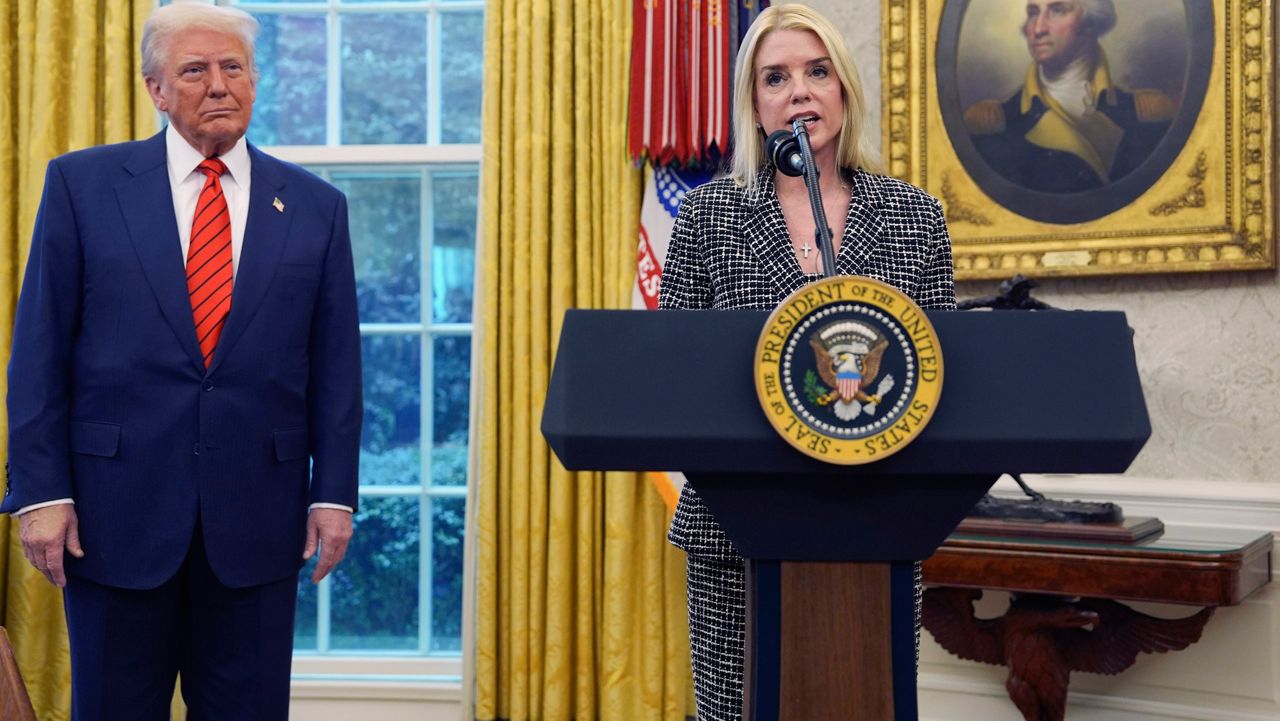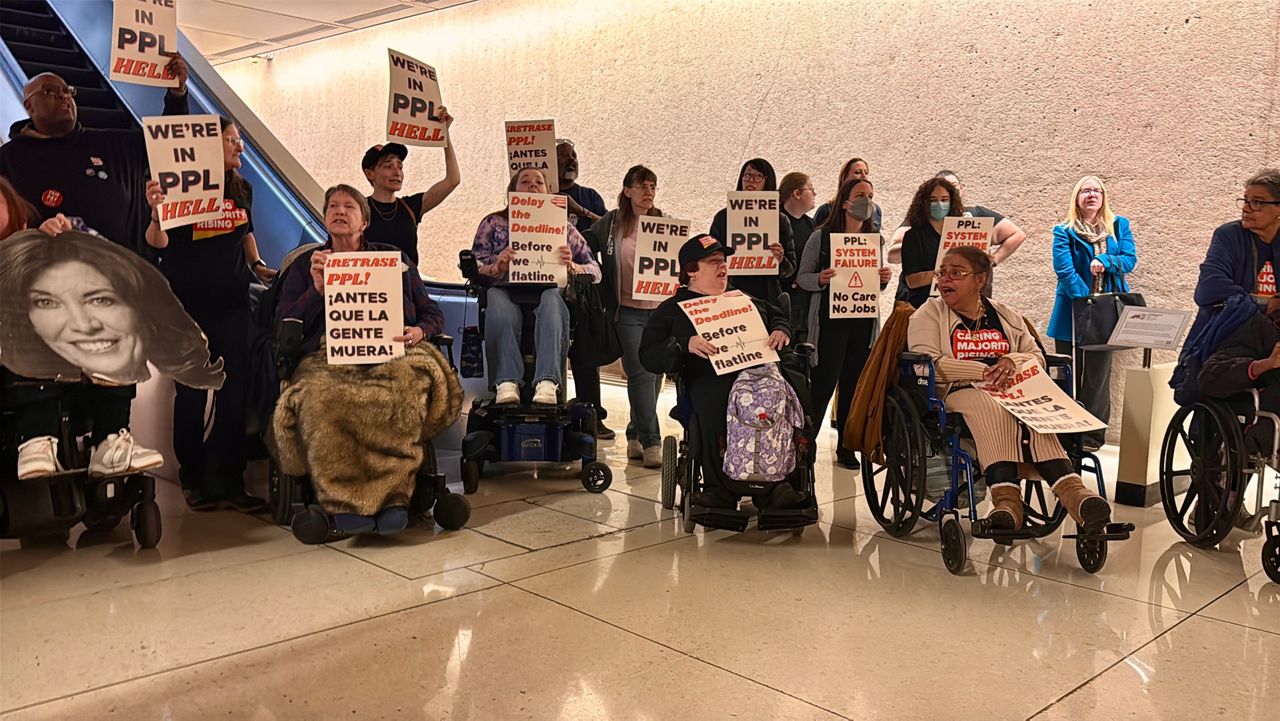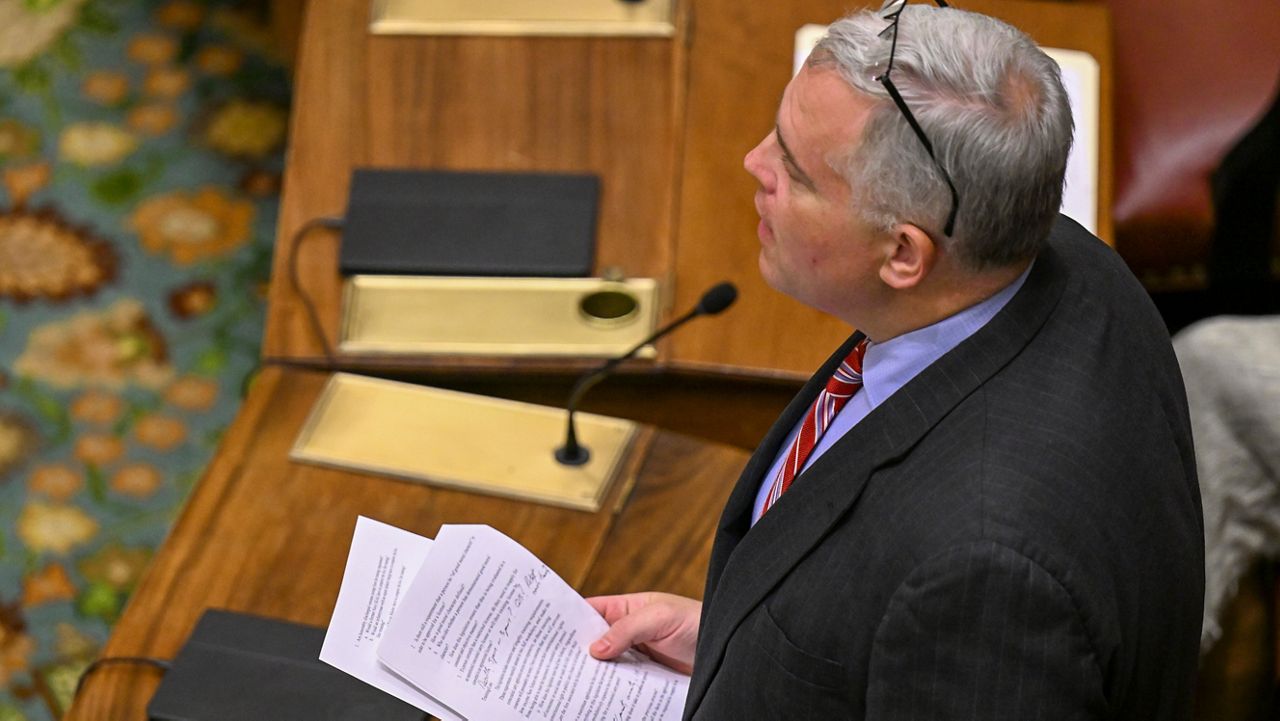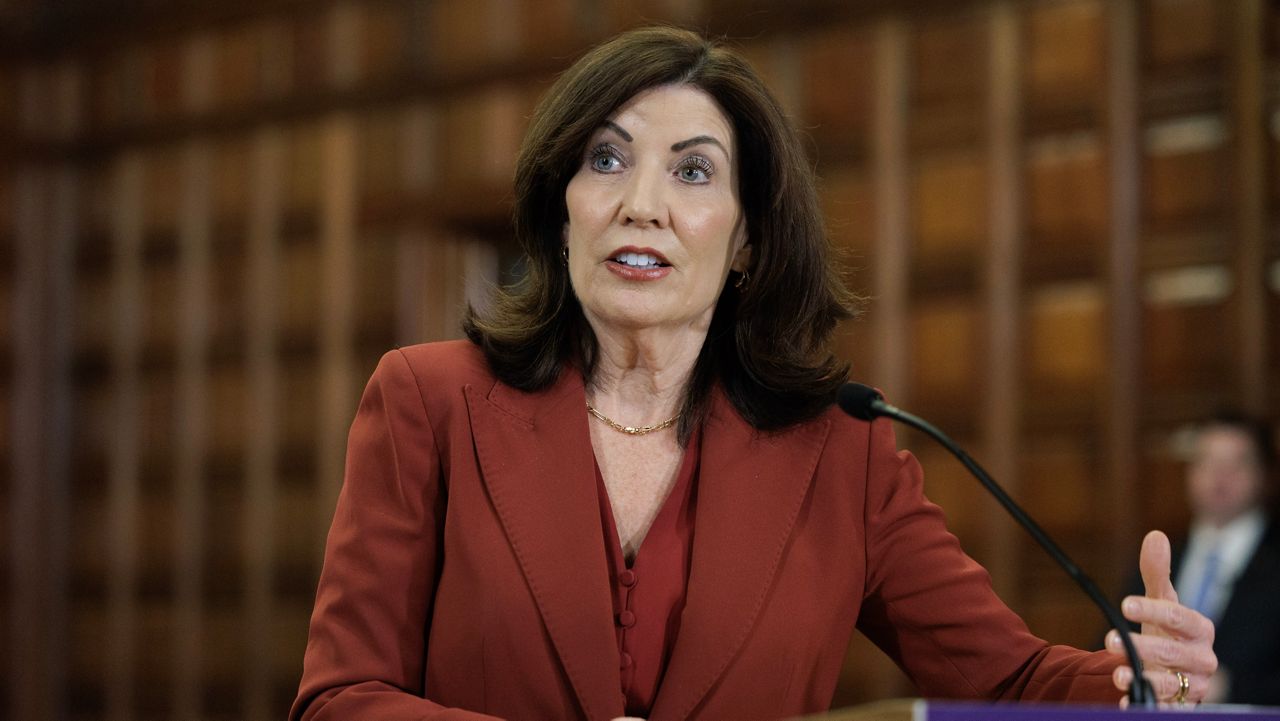A new hotline assisting with the transition of a popular Medicaid home care program to one company received more than 1,000 calls on its first day, company leaders said Tuesday.
In 12 weeks, Public Partnerships LLC, will become the state's sole fiscal intermediary for its Consumer Directed Personal Assistance Program, which more than 280,000 New Yorkers rely on for home care.
PPL President Maria Perrin said Tuesday she remains confident the company can register hundreds of thousands of New Yorkers before the change takes effect April 1.
"It's good to see a steady stream of callers coming in," Perrin told Spectrum News 1. "I'm happy to report there's very little wait time, so if you're interested in calling and starting your transition, it's a good time to start doing that."
About 1,100 agents and 300 overflow staff run the company's new customer support services six days per week — aiming to enroll about 3,800 people per day to meet the April 1 deadline.
A total of 35 subcontractors, including 11 Independent Living Centers, will also assist with the transition. Lawmakers voted for the change in last year's budget to cut down on widespread program fraud and abuse.
Personal assistants continue to be concerned about their new pay rate, or rules about overtime, under PPL, which the company has not answered.
Perrin said pay will depend on location.
"The worker will get their direct rate of pay from us or one of our facilitators rather than just 'This is the rate of pay for everybody,'" she said.
Advocacy group Caring Majority Rising dispersed a flyer to CDPAP recipients over the last few weeks and encouraged them to call the hotline Monday after it opened. About 100 people from the group called in Monday.
Caring Majority Rising Lead New York State Organizer Julia Solow said the notice was sent to CDPAP users to publicize the service and get answers to their questions — not flood PPL's support center.
"We want answers for people whose lives will be completely changed by this decision," she said Tuesday. "People want answers for themselves. They didn't need questions to be given to them. They already knew what their questions were."
Perrin said only a handful of the first 1,000 calls were made by a person who did not attempt to register with PPL. But the company has an automated message that immediately warns callers of misinformation by advocates and higher-than-usual wait times.
"Unfortunately, some groups that oppose the fiscal intermediary change are spreading misinformation and have launched a coordinated effort to block our phone lines and keep people from getting the support they need," an automated voice says after calling the new support line.
Perrin said some callers refused to register with the company — like Michelle Fridley.
Fridley, of Canandaigua, was mostly paralyzed after a car accident 24 years ago, and relies on CDPAP for 24-hour care. She works with eight home health aides who don't know their new pay rate or if they can work overtime, and fears the changes will force her into a nursing home.
"Those are the questions that I need to have answered and I didn't get one of them answred yesterday," Fridley said.
PPL answered Fridley's call immediately Monday when she dialed in just before noon, but the agent could not answer her specific questions about staff hours or pay and promised someone from the company would call her back within 48 hours.
Fridley had not received a call back from the company as of late Tuesday afternoon.
"I need to know if they are going to allow overtime because that depends on the number of attendants I have — the ones that are probably going to quit," Fridley explained.
PPL must abide by the state's home care minimum wage, which is $19.10 in New York City, Long Island and Westchester and $18.10 per hour in the rest of the state.
Perrin said PPL put together a comprehensive wages and benefits package for all personal assistants.
"Pay rates for personal assistants (workers) are based on the consumer’s location and their service authorization," according to a statement from Hochul's office. "This is provided to personal assistants once they are verified. Because there is currently no centralized database to track variation in wages or benefits, the differences are not yet known."
Home care recipients who have concerns about the new company could exacerbate issues with the transition and disrupt their care if they refuse to register.
But Fridley said she will wait as long as possible before deciding to transition to PPL, and hopes lawmakers can extend the timeline this session.
Senate Health Committee chair Gustavo Rivera sponsors legislation that would delay CDPAP changes until later this year, and mandate fiscal intermediaries get a state license to combat fraud.
He expects it will be a top priority in this session's budget fight.
"It’s about recognizing that the change that they are attempting to push through is not a very thought through and not a very reasonable way to change the system," Rivera said.
Program users and caregivers must sign a memorandum of understanding to register with PPL. Consumers can see their paperwork, personal assistant information, service authorization and other data in an online portal. Consumers can also complete their transition at in-person events the company will hold around the state.
All program recipients and their home health aides must be registered with the new company before the change takes effect this spring — when nearly 700 smaller companies that have managed CDPAP will cease to exist.
The company will register new program recipients starting March 1.







